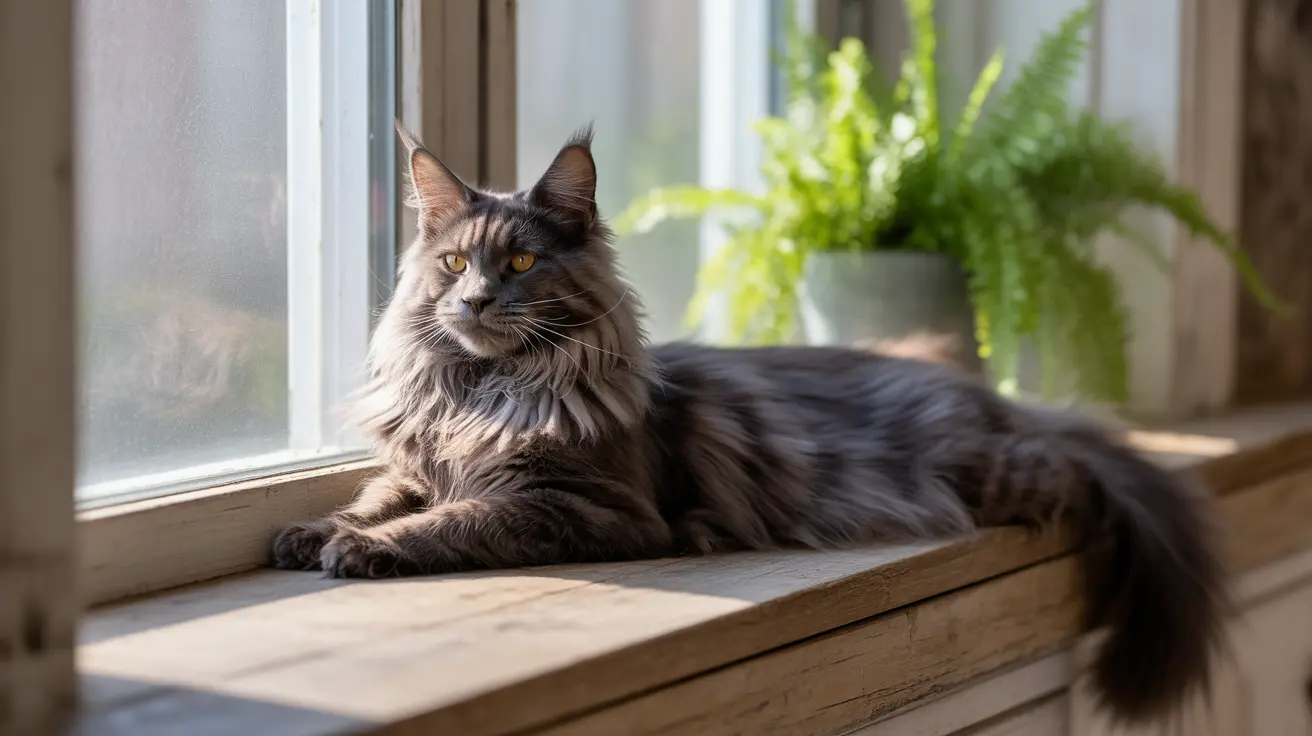Has your majestic black cat's fur suddenly started taking on a brownish hue? This unexpected color transformation can be concerning for pet owners, but there's usually a logical explanation behind this common phenomenon. Understanding why your black cat is turning brown can help you determine whether it's a natural occurrence or if it requires veterinary attention.
Understanding Black Cat Coat Colors
Black cats get their striking color from melanin, specifically eumelanin, which produces black pigmentation. However, various factors can affect melanin production and distribution, leading to noticeable color changes in your cat's coat. These changes can appear gradually or suddenly, affecting either the entire coat or specific areas.
Natural Causes of Color Change
Sun Exposure Effects
One of the most common reasons for a black cat's fur turning brown is sun exposure. Just like human hair can lighten in the sun, your cat's fur contains melanin that can break down with prolonged UV exposure. Cats who spend time lounging in sunny windows or outdoors may develop a rusty or reddish-brown tinge to their coat, particularly on areas that receive the most sun exposure.
Genetic Factors
Sometimes what appears to be a color change is actually genetics at work. Many black cats carry underlying tabby patterns that become more visible as they age. Additionally, some cats possess genetic variations that naturally produce brown or cinnamon-colored pigments, which may become more pronounced over time.
Health-Related Color Changes
Nutritional Deficiencies
A lack of certain nutrients can affect your cat's coat color. Tyrosine, an amino acid crucial for melanin production, is particularly important. When cats don't get enough tyrosine or its precursor phenylalanine in their diet, their black coat may fade to brown. This often occurs in cats not receiving adequate protein from meat sources.
Medical Conditions
Several health issues can cause coat color changes:
- Thyroid disorders
- Liver problems
- Kidney dysfunction
- Copper deficiency
- Zinc toxicity
These conditions typically present with additional symptoms beyond coat color changes, such as changes in appetite, energy levels, or litter box habits.
When to Consult a Veterinarian
While some color changes are benign, others warrant professional attention. Contact your veterinarian if you notice:
- Sudden or dramatic color changes
- Patches of different colors appearing
- Other accompanying symptoms
- Changes in eating habits or behavior
- Excessive scratching or skin problems
Preventive Measures
To maintain your cat's healthy coat color:
- Provide a high-quality, protein-rich diet
- Ensure adequate indoor spaces away from direct sunlight
- Schedule regular veterinary check-ups
- Consider supplements if recommended by your vet
Frequently Asked Questions
Why is my black cat's fur turning brown or reddish?
Your black cat's fur may turn brown or reddish due to sun exposure, nutritional deficiencies, or natural aging. Sometimes, underlying health conditions or genetic factors can also cause this color change.
Can sun exposure change a black cat's coat color?
Yes, prolonged sun exposure can cause a black cat's fur to fade to brown or reddish tones, similar to how human hair can lighten in the sun. This process is called photo-oxidation of melanin.
What nutritional deficiencies cause black cats to turn brown?
The main nutritional deficiencies that can cause coat color changes are tyrosine and phenylalanine deficiencies. These amino acids are essential for producing melanin, the pigment that gives black cats their color.
When should I worry about my black cat's coat turning brown?
Consult a veterinarian if the color change is sudden, accompanied by other symptoms like lethargy, appetite changes, or skin problems, or if your cat shows signs of discomfort or illness.
Do black cats naturally lighten to brown as they age?
Yes, some black cats may naturally lighten with age, similar to how humans gray. This can be due to genetic factors, aging processes, or the revelation of underlying coat patterns.






